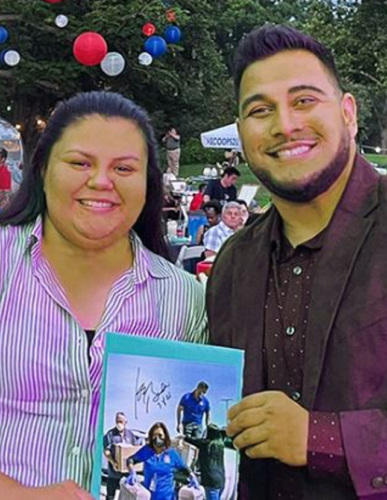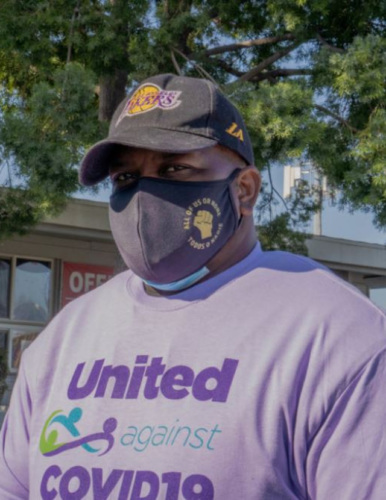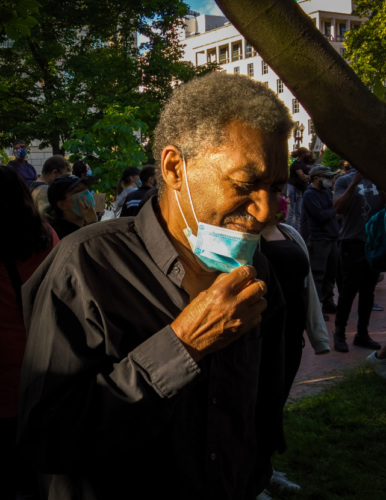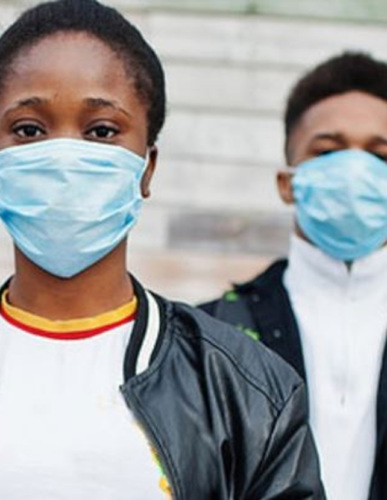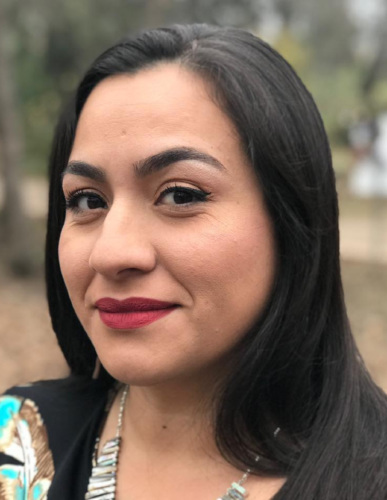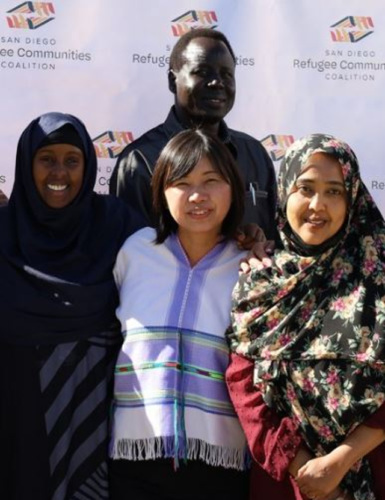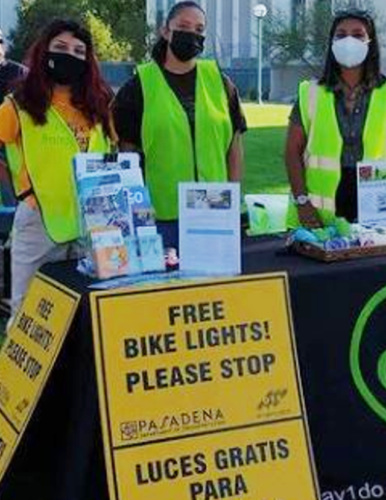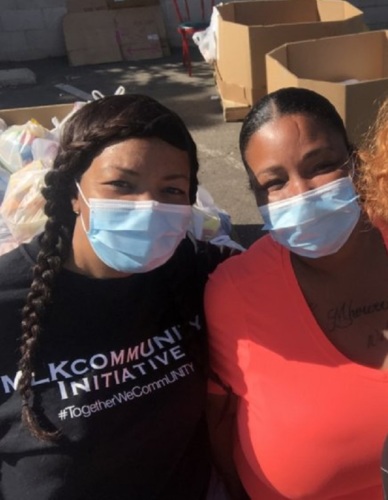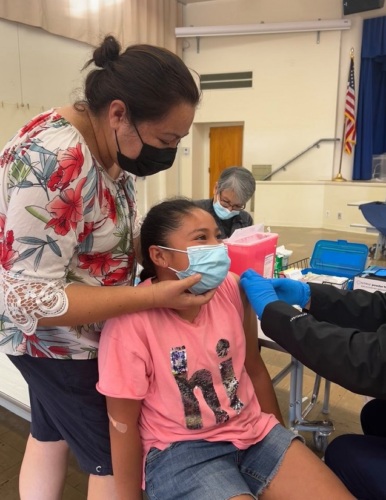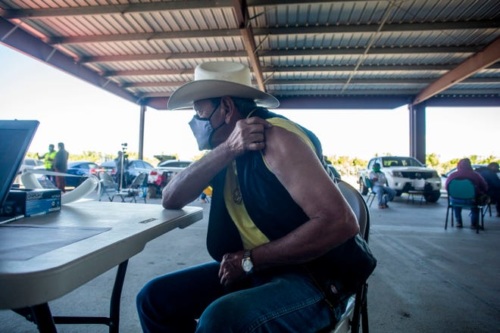
Update
Achieving Vaccine Equity: Resources & Best Practices to Bring Down Barriers
-
Focus Areas
Capacity Building & Leadership, Communicable Disease Prevention -
Expertise
Outreach & Dissemination -
Strategic Initiatives
COVID-19, Vaccine Access & Equity
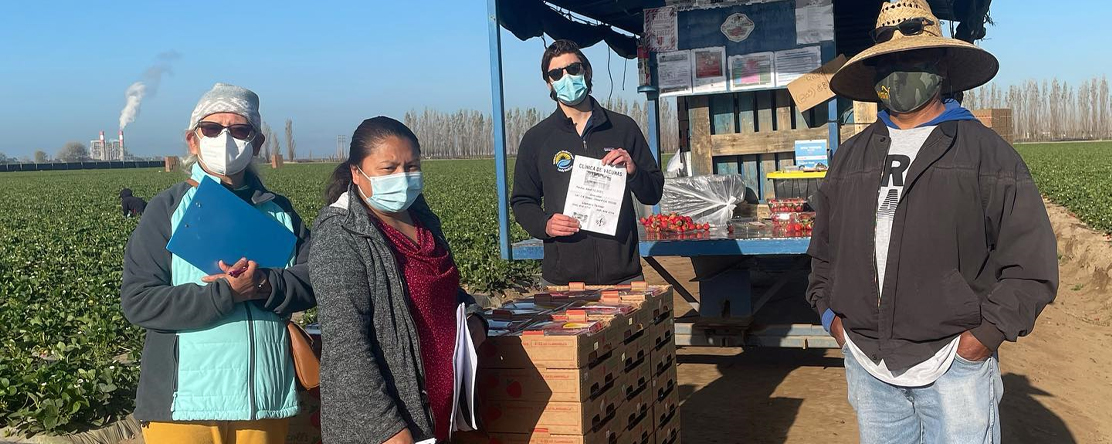
Structural and systemic barriers mean that the people who are hardest hit by the COVID-19 pandemic—including Black and brown people, immigrants and essential workers—have less access to vaccines.
But we know what works. We can reach underserved communities and address systematic obstacles by investing in trusted community experts, organizations and networks; using culturally resonant primary language materials and outreach; and bringing down barriers to accessing vaccines.
Health care providers and public health share the responsibility to reach all communities and specifically address these barriers. To help support and guide vaccine equity efforts in your community, explore resources and best practices from PHI and our programs.
Bringing Vaccine Equity Access to Californians
See how our Together Toward Health is supporting COVID and vaccine equity
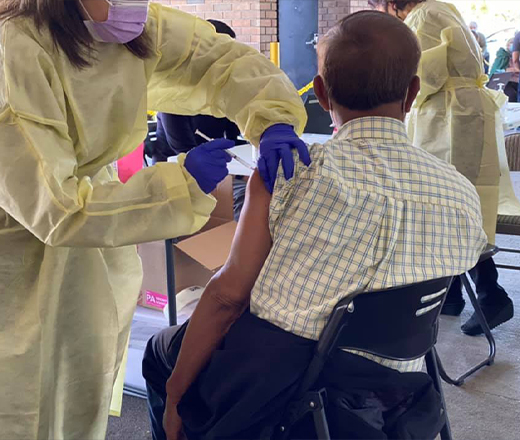
- 539 CBOs serving as trusted messengers to reach their neighbors
- 204 awards to churches, community centers, coalitions and more
- $30.8M committed to support COVID and vaccine equity access

Best practices & resources to guide vaccine equity
- COVID-19 Study Finds Striking Inequities in Access to Healthcare During the Pandemic (1/26/2023):A study from PHI’s Alcohol Research Group (ARG) found that during the pandemic Hispanic/Latinx respondents were 20 percentage points less likely to receive needed general healthcare and 18 percentage points less likely to receive behavioral healthcare, than White respondents. Respondents delayed getting care largely due to pandemic-related issues like medical office closures, lockdowns, or fear of infection, as well as cost. Temporary telehealth policies put in place during the pandemic proved critical to increasing access: 98% of Hispanic/Latinx respondents who received any behavioral healthcare during this period used telehealth for their care.
 Jóvenes latinos sirven como educadores de salud para mejorar las tasas de vacunación en sus comunidades (1/25/2023): Tomas Magana, de PHI, habla sobre la importancia de los jóvenes como educadores de COVID para sus compañeros y familiares, especialmente para la comunidad latina. Magana lidera la Coalición FACES for the Future de PHI, un cuerpo juvenil de salud donde los estudiantes han aprendido cómo ser educadores de vacunas COVID en la comunidad.
Jóvenes latinos sirven como educadores de salud para mejorar las tasas de vacunación en sus comunidades (1/25/2023): Tomas Magana, de PHI, habla sobre la importancia de los jóvenes como educadores de COVID para sus compañeros y familiares, especialmente para la comunidad latina. Magana lidera la Coalición FACES for the Future de PHI, un cuerpo juvenil de salud donde los estudiantes han aprendido cómo ser educadores de vacunas COVID en la comunidad.- Latinx Youth Serve as Health Educators to Improve Vaccine Rates in Their Communities (1/25/2023): PHI’s, Tomas Magana, discusses the importance of youth as COVID educators for their peers and family, especially for the Latino community. Magana leads PHI’s FACES for the Future Coalition, a health youth corps where students have learned how to be COVID vaccine educators in the community.
- Together Toward Health: Supporting Communities Through COVID-19 and Beyond(1/17/2023): Guided by equity, PHI’s Together Toward Health is a joint program with major California philanthropic organizations, which supports more than 500 community-based organizations statewide who serve as trusted experts for COVID-19 education, testing and vaccination access in their communities.
- PHI’s Susan Watson Speaks on COVID-19 Vaccine Uptake in Black Communities (11/8/2022): Susan Watson, Program Director of PHI’s Together Toward Health, presented at the American Public Health Association’s 2022 Annual Meeting & Expo in Boston, Massachusetts where she discussed COVID-19 in Black communities, the importance of an equitable response, and addressing historical barriers to vaccine access.
 Briefs: Responding to COVID-19 Through Multi-Funder Collaboration and Fast, Flexible Funds to Communities (8/31/2022): PHI’s Together Toward Health is a COVID-19 response initiative, formed by a pooled, multi-funder collaborative to provide fast, flexible funds to CBOs with local knowledge and community trust. Find insights and lessons-learned, including recommendations to inform and strengthen shared grantmaking efforts, and guidance on how flexible funding can build health, equity and community power.
Briefs: Responding to COVID-19 Through Multi-Funder Collaboration and Fast, Flexible Funds to Communities (8/31/2022): PHI’s Together Toward Health is a COVID-19 response initiative, formed by a pooled, multi-funder collaborative to provide fast, flexible funds to CBOs with local knowledge and community trust. Find insights and lessons-learned, including recommendations to inform and strengthen shared grantmaking efforts, and guidance on how flexible funding can build health, equity and community power.- New Study Shows Connection Between Air Pollution and Increased Risk for COVID Infection and Death in California (8/2/2022): California is home to some of the highest concentrations of air pollution in the nation. A study released today by the Public Health Institute’s Tracking California program reveals that air pollution increases the risk of COVID-19 infection and death. The study, Association Between Long-Term Exposure to Particulate Air Pollution with SARS-CoV-2 Infections and COVID-19 Deaths in California, U.S.A., was conducted in partnership with researchers from the University of California, San Francisco.
- Supporting Communities and Local Public Health Departments During COVID-19 and Beyond: A Roadmap for Equitable and Transformative Change (7/20/2022): In this report, Public Health Alliance of Southern California and the California Department of Public Health’s Office of Health Equity share policy, program, and resource recommendations and best practice examples to help ensure that local public health departments are adequately prepared to protect communities most vulnerable to the health and socioeconomic impacts of COVID-19, as well as future public health emergencies.
- Lifting Up Community Stories through Art: Changing the Cultural Narrative to Advance Racial Justice and Increase Vaccine Equity (7/12/22): Abeni Bloodworth, co-founder and narrative strategist of CHROMATIC BLACK (CB), is fostering belonging through one of the most powerful tools since the beginning of time: story. CB is powered by a community of 10,000 Black artists/activists, technologists, community organizers, and journalists working to build cultural power through the reclamation of story as a public common. Through CB’s partnership with the Public Health Institute’s Communities RISE Together, Bloodworth and her colleagues are galvanizing their artists in 60 mostly rural communities throughout the South, and in San Bernardino, CA, and St. Louis, MO, to capture and tell “COVID LOVE” and “COVID TRUTH” stories.
- PHI’s Communities RISE Together program featured at White House Summit on American Rescue Plan and Workforce (7/11/22): During the summit, state and local leaders across the country will be highlighting different models of American Rescue Plan investments in workforce development in the areas of care and public health, infrastructure and expanding the workforce. The American Rescue Plan provides critical funding to help support children, families and communities most affected by the COVID-19 pandemic, which have been exacerbated by a long history of health inequities and racial injustices.
- How to Emphasize Equity When Talking About COVID-19 Pandemic Recovery (6/30/2022): What might a truly equitable recovery from the pandemic look like? PHI’s Berkeley Media Studies Group shares strategic communication recommendations to help shape recovery efforts in ways that center racial and health equity, including: frame recovery in terms of people and public health, rather than strictly economic; name specific solutions that elevate equity; prepare public health and community messengers; and generate media attention for a just recovery.
- Video Series – What Latino Parents Need To Know About COVID Vaccines (5/18/2022): A comprehensive video series from PHI’s Latino Coalition Against COVID-19 answers frequently asked questions about COVID-19 and vaccines in English and Spanish, including: “Should I vaccinate my child if they already had COVID-19?,” “Are there COVID-19 treatments I can use at home?,” “What does it mean to be ‘fully vaccinated’ now?” and more. It also shares best practices for how the medical community can better reach Latino families.
- Bringing Together County and Community Expertise to Stem COVID-19 (5/15/2022): In Santa Barbara, seven Together Toward Health-funded community-based organizations and the health department worked together to reach farmworkers, Black communities and other systemically excluded groups with COVID-19 resources and vaccines. Partners met each week to share their collective expertise, including in-depth data, tailored materials and insights on how to successfully connect with community members. Today, the group continues to collaborate on addressing broader health and equity goals.
- Video: PHI STAR Fellow Dr. Olayinka on Gates Foundation Working Dinner: “New Variants, New Challenges”(5/9/2022): On the Gates Foundation Working Dinner series, PHI STAR Fellow Dr. Folake Olayinka joins other leading global health experts to discuss the global impact of COVID-19 variants and strategies to better prepare our health systems for both future variants and the next pandemic—beginning at the community level.
- Philanthropy Must Never Forget What the Pandemic Taught Us About How to Support Public Health (4/5/2022): Originally published in the Chronicle of Philanthropy, Susan Watson, director of PHI’s Together Toward Health, reflects on how the pandemic has taught philanthropic and public-health leaders to connect with hard-to-reach communities and trust the community-based organizations that understand best what their neighbors need.
- Video: Together Toward Health (2/22/2022): See how the Public Health Institute’s Together Toward Health connects with community based organizations to expand workforce development opportunities for Californians most impacted by COVID-19, and to create and amplify public outreach efforts to reduce its spread.
- Partnering to Reach Systemically Excluded Communities: Thanks to funding from PHI’s Together Toward Health, community-based organizations in California’s San Joaquin Valley are able to reach farmworkers, queer networks, Black communities and other systemically excluded communities with COVID-19 vaccines and resources. “Being a TTH partner helped us get canvassers on the ground, at events and in churches, educating and engaging around health,” said Arleana Waller, founder and leader of TTH grantee MLKcommUNITY.
- Video: Communicating About Vaccines: Meeting People Where They Are (2/2/2022): Shame is all too common in communication about vaccines, but we should avoid it because it is/ not effective at changing individuals’ hearts and minds. Instead, as research has shown, we need to demonstrate empathy, listen without judgment, and share messages using credible local spokespeople who are easy for audiences to relate to. Learn more in this video, the fourth in a series from Berkeley Media Studies Group.
- Blog: Five Ways To Combat Misinformation When Communicating About COVID (1/15/2022): Misinformation and disinformation are fueling vaccine hesitancy and discouraging communities from seeking out resources and services that could improve their lives. Addressing these threats is a public health imperative. See five tips for how public health advocates and practitioners can combat misinformation, from PHI’s Berkeley Media Studies Group.
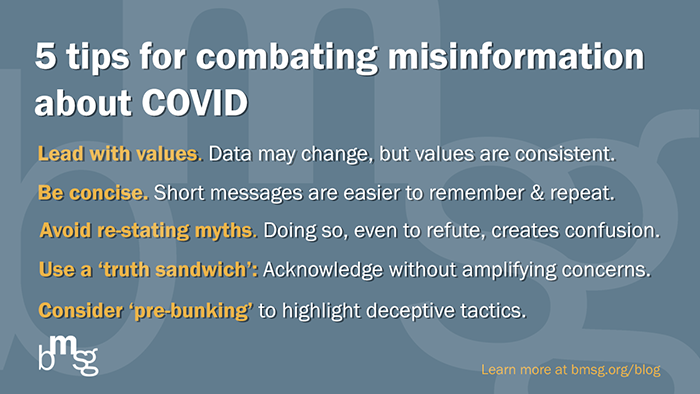
- Monterey County COVID Collaborative Helps Residents Find Testing Sites (1/11/2022): In Monterey County, the VIDA project and the Monterey County COVID-19 Collaborative, grantees of PHI’s Together Toward Health program, are providing COVID-19 testing and vaccination information in English, Spanish, and Triqui, Zapoteco, and Mixteco, indigenous languages of Mexico. They reach about 7,000 people each month and in January 2022 they tested 2,688 people for COVID.
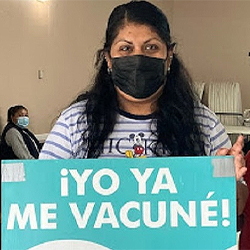 PHI’s Together Toward Health Recognized for Vaccine Equity Partnerships by California Governor Gavin Newsom (12/13/2021): PHI’s Together Toward Health is featured in the 2021 State of California Social Innovation Impact Report as a leading example of how to resource, build and leverage trusted partnerships with community-based organizations to advance health and vaccine equity.
PHI’s Together Toward Health Recognized for Vaccine Equity Partnerships by California Governor Gavin Newsom (12/13/2021): PHI’s Together Toward Health is featured in the 2021 State of California Social Innovation Impact Report as a leading example of how to resource, build and leverage trusted partnerships with community-based organizations to advance health and vaccine equity.- Webinar Recordings: Kaiser’s Public Health and the Delivery System: Vital Connections: “Community based organizations are more than partners,” said PHI President and CEO Mary A. Pittman at Kaiser Permanente Institute for Health Policy’s virtual forum. “They are an integral part of the public health ecosystem and we need to think about how to shift resources, power and decision making, and different ways of thinking about community-based organizations and our next steps in building that important link between healthcare and public health.” This two-part discussion examines how public health department and delivery system leaders are navigating the pandemic response, and how we can support an effective public health system for the future. The event featured PHI President and CEO Mary A. Pittman; Greg A. Adams, CEO of Kaiser Foundation Health Plan; Anthony A. Barrueta, Senior Vice President of Government Relations for Kaiser Foundation Health Plan and PHI Board member; and other leading health experts.
- Report: COVID-19 Contact Networks in Hispanic and Latino Communities: Analysis of Contact Tracing Data from a Large California Healthcare Provider Network (11/29/2021): An analysis from PHI’s Tracing Health and Population Health Innovation Lab revealed how Latinx people experience higher levels COVID-19 transmission risks factors that are beyond their control—including working essential jobs and living in larger households.
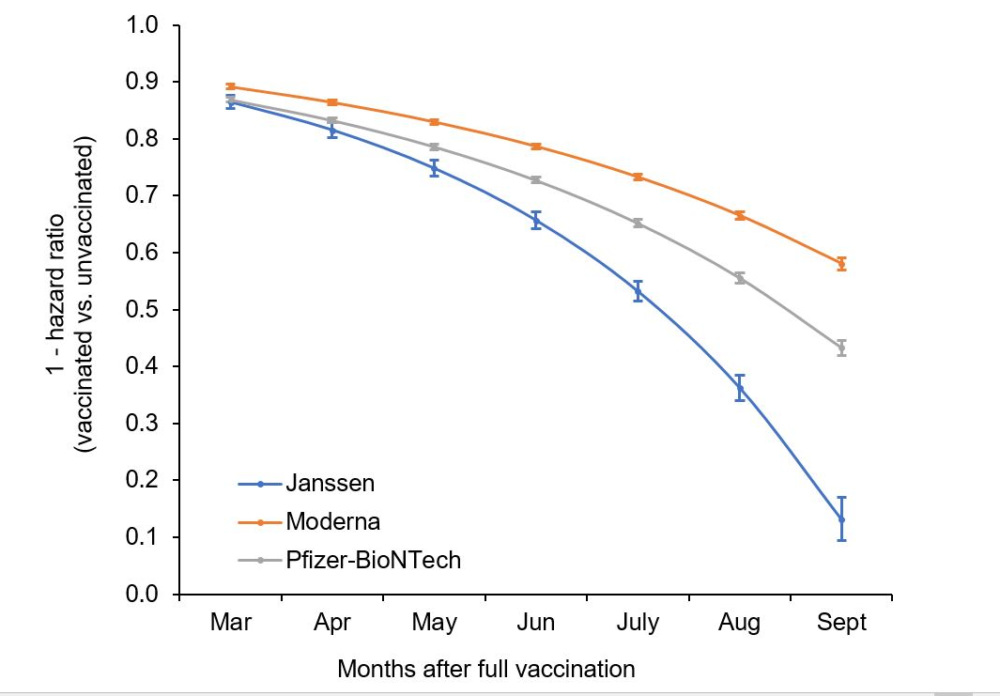
Breakthrough Infection Study Compares Decline in Vaccine Effectiveness and Consequences for Mortality
A study published in the leading journal Science reviewed COVID-19 breakthrough infections among 780,225 Veterans, finding that vaccine protection declined from 87.9% to 48.1% during the 2021 Delta surge in the U.S. The researchers from PHI, the Veterans Affairs Medical Center and the University of Texas Health Science Center found a dramatic decline in effectiveness for the Janssen (Johnson and Johnson) vaccine, from 86.4% in March to 13%.1 in September. They also found that vaccination of any type was protective against death among infected individuals.
- Video: How to discuss racial equity in vaccine uptake (11/10/2021): To help ensure equitable vaccination rates in all neighborhoods, public health advocates and practitioners must center communities of color in their messages. Being silent on racism allows vaccine opponents to invoke medical oppression in their communication, stoking further division, hesitancy, and distrust. This video, the third in a series from BMSG, offers strategic communication tips for advancing racial and health equity in immunizations.
- Vaccine Equity Strategy Series: Concrete Best Practices and Ideas for Communities: PHI’s Vaccine Equity Strategy Series provides short, actionable advice and best practices to guide your community’s efforts to advance vaccine access and equity, including: how to create and distribute materials in primary languages; how to create gender-affirming spaces for transgender, gender nonconforming and gender nonbinary people; strategies to improve access for people who use sign language to communicate; and more.
- Video: Communicating about vaccines: Illuminating the context for access and hesitancy (10/20/2021): To boost vaccine rates, public health practitioners and advocates need more than just compelling messages; we also must confront the practical barriers that make it hard for some people to access the vaccine—and credible information about it. In this video, PHI’s Berkeley Media Studies Group discusses the context for why vaccination rates are lagging in some communities.
- Fresno Teens Fighting COVID Misinformation in the Latino Community (10/4/2021): In Fresno, California, vaccine uptake among eligible youth continues to be lower than other groups. Now a first-of-its kind program for high school students is training them as junior community health workers or “promoteritos,” so teens can help dispel misinformation about COVID-19 and encourage their peers, relatives and neighbors to get vaccinated. The program is co-coordinated by Together Toward Health grantee Cultiva La Salud. Susan Watson of PHI’s Together Toward Health program comments on the role of teens as trusted health care messengers.
- Talking about Breakthrough Infections: Recommendations for Public Health Practitioners (8/12/2021): Get messaging guidelines, useful metaphors and analogies, and sample talking points that address questions about breakthrough cases, while still reinforcing critical strategies like vaccinations and wearing masks.
- Video: Communicating about vaccines: Investing in trusted messengers (8/12/2021): In the first video in a series, from PHI’s Berkeley Media Studies Group, find strategic communication tips to help public health advocates and practitioners communicate with the public in ways that foster trust.
- Video: Reaching Native Hawaiian & Pacific Islanders in Vaccine Distribution (6/17/2021): In this Vaccine Equity video, from PHI’s Public Health Alliance of Southern California Vaccine Equity Video Series, hear from Isabella Lesa, Community Health Worker with the Utah County Health Department and Jake Fitisemanu, Co-Founder and Board Member of the Utah Pacific Islander Coalition and Program Manager with the Utah State Department of Health, as they discuss the importance of disaggregated data and culturally grounded efforts in reaching NHPI community members in vaccine distribution.
- Videos: Watch these videos from PHI’s WeVax + LA to hear trusted doctors, from Los Angeles County Medical Association (LACMA), and community members discuss vaccine safety and equity.
- Web Forum Recording: Hesitancy, Equity, and Transparency: In Conversation with Pastor and Lawmaker James D. Gailliard on the COVID-19 Vaccine Roll Out (6/17/2021): In this Dialogue4Health web forum, PHI President and CEO Dr. Mary A. Pittman and Pastor James D. Gailliard, a state representative in the North Carolina Assembly, will reflect upon efforts to achieve equitable distribution of COVID-19 vaccines and explore how faith-based organizations and state policy interventions work toward this goal in North Carolina.
- Video: Reaching Pasadena’s “Hard to Reach” Neighborhoods with Vaccines (6/14/2021): Find out how one of PHI’s Tracing Health contact tracing teams is partnering with the City of Pasadena to follow up with prior COVID cases and contacts, to inquire about vaccination status and schedule an appointment if the individual still needs to get vaccinated. In the first month of the effort, the team has scheduled 61 vaccine appointments in Pasadena neighborhoods that have been hardest to reach. The Tracing Health team has developed a strong partnership with the City of Pasadena while meeting every week to discuss wins and barriers.
- ADA National Network Learning Session: Disability Inclusion and Considerations in Vaccination Centers and Operations (6/10/2021): This session, from PHI’s Pacific ADA Center, discussed accessibility considerations for vaccination centers centered primarily around physical accessibility, communication access, and programmatic access including staff training and information sharing. Vaccination sites come in all sizes and this discussion will highlight mega sites, and will focus around the sites in Los Angeles, California; mobile vaccination missions through large cities and remote routes; and fixed facilities in Nevada and Washington.
St. Louis Health Department & Housing Authority Partnership
Discover how the City of St. Louis Health Dept. partnered with the St. Louis Housing Authority to help register hard hit communities for COVID-19 vaccination. In St. Louis, data from a January 2021 survey revealed that of 17,000 individuals who registered their interest in receiving the COVID-19 vaccine, less than 3,000 were from under-resourced and low-income neighborhoods such as North St. Louis.
Improving Accessibility for Individuals Living with Disabilities
Watch how health leaders from the Los Angeles County Department of Public Health’s Center for Health Equity—in partnership with key community stakeholders with lived experience and organizations that serve communities with disabilities—have developed and are working to implement a set of core recommendations to improve access to COVID-19 vaccinations for individuals living with disabilities.
Creating Safe and Affirming Spaces for Vaccine Distribution
Watch Hieu Nguyen, Director of the Orange County Health Care Agency Office of Population Health & Equity, and Khloe Rios Wyatt, President and Chief Executive Officer of Alianza Translatinx, discuss the importance of creating safe, inclusive, affirming spaces for transgender, gender non-conforming and gender non-binary community members in COVID-19 vaccination distribution and administration.
- Transparency: Rolling out the COVID-19 Vaccine (5/6/2021): Trust and trustworthiness are a significant part of achieving equitable distribution of COVID-19 vaccines. Tune in to hear from moderator Dr. Mary Pittman, PHI CEO & President, and speakers—including Dr. Bechara Choucair, Vaccinations Coordinator for the White House COVID Response Team, responsible for overseeing the national vaccination efforts under the Biden-Harris administration—to learn how policymakers, health care providers, pharmacies, and community-based organizations can build trust, address population-specific needs, leverage trusted community resources and more.
- Strategy: Bringing Vaccine Clinics to Faith Congregations (4/23/2021): PHI’s Together Toward Health (TTH) funds outreach efforts in 300+ organizations in communities across the state that have been hard-hit by COVID and are under-reached by vaccine and prevention efforts. CBS Sacramento profiles how TTH and the state are partnering with 200 faith-based organizations to provide more than 25,000 COVID-19 vaccine doses at pop-up clinics right in neighborhood places of worship.
- Webinar Recording: Vaccine Access for People with Disabilities: Guidance, Funding, Strategies, and Best Practices (4/22/2021): Watch this webinar recording from PHI’s Pacific ADA Center to hear Alison Barkoff and HHS’s Office for Civil Rights Acting Director Robinsue Frohboese discuss information on guidance, funding, strategies and best practices related to vaccine access for people with disabilities.
- Webinar Recording: Partnering with Communities to Navigate Equitable Vaccine Access (3/25/2021): In this CDC Foundation webinar recording, community leaders and experts share strategies to address the concerns and needs of communities and overcome challenges of getting people vaccinated. PHI’s Susan Watson shares early lessons learned from our Together Toward Health initiative, which is investing in over 270 local community-based organizations that serve as trusted experts for education, testing and vaccination access in communities most impacted by COVID-19. Get guidance on building on-the-ground collaborations with local organizations, ideas for reaching rural populations including farmworkers, and strategies for partnering with Community Health Workers.
Mobile Clinics: Black and Well in the LBC
Watch how the City of Long Beach Health Department launched a series of partnerships with community-based organizations to host mobile vaccination clinics aimed at reaching Black, Latinx and Cambodian community members, to ensure a more equitable distribution of the COVID-19 vaccine.
Riverside Vaccinates Farmworker On Sites
See how the Riverside County Public Health Department, in partnership with the Coachella Valley Equity Collaborative (spearheaded by the Desert Healthcare District & Foundation and community-based partners), launched mobile vaccination clinics that brought COVID-19 vaccines directly to farmworkers in the fields.
Local Partnerships: Protect Chicago Plus
Find out how Protect Chicago Plus paired the health department with local community organizations and increased the percent of first-dose vaccines going to Black and Latinx people from 18% in the first week of distribution to close to 59% in the most recent week of distribution.
- Tookits & Resources: Find and use toolkits and resources from partners and grantees on the new Together Toward Health website, including a mailer for Punjabi speakers created by grantee Jakara Movement, a Spanish-language song from grantee El Sol Neighborhood to support vaccinations in Latinx communities, and more. Many of these materials are designed to be repurposed and used in your community’s outreach efforts.
- Strategy: Bringing Vaccines Directly to Essential Farmworker Communities: Funding from PHI’s Together Toward Health has been instrumental in providing additional resources and staffing to eight local community-based organizations which are part of the Desert Healthcare District-led Coachella Valley Equity Collaborative. Thanks to this support, the Collaborative is hosting vaccination clinics directly in the Valley’s farmworker communties, providing protection to several hundred farmworkers a day.
- Communicating about the COVID-19 Vaccines: PHI’s Berkeley Media Studies Group offers sample messages, guidance and tips to help public health leaders communicate more clearly and effectively about vaccines, engage with trusted messengers and bring racial equity forward. See and share our slides on Instagram.
More Updates

PHI’s Building H: Why Health Should Be A Bigger Component of Socially Responsible Investing

Join: Racial Equity Community of Practice for State Government

Apply: CivicSpark-AmeriCorps Fellow Application for 2025-2026

Safeguarding the Health and Wellbeing of Agricultural Workers in Monterey County: A 5-Year Glance at the COVID Pandemic & Lessons Learned
Work With Us
You change the world. We do the rest. Explore fiscal sponsorship at PHI.
Support Us
Together, we can accelerate our response to public health’s most critical issues.
Find Employment
Begin your career at the Public Health Institute.
